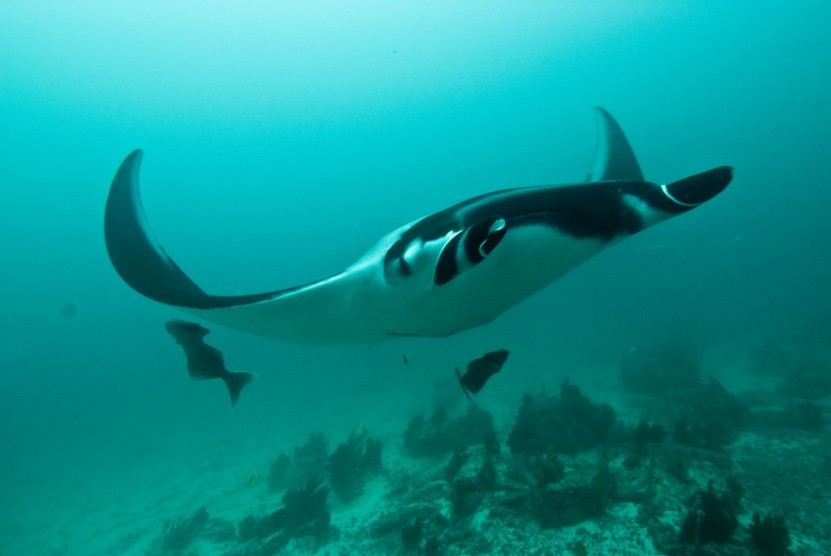Diver was not “attacked” by Manta Ray

A month ago a diver unfortunately passed away while working in the deepness of the ocean in Northern Peru. According to the press and witnesses, this incident involved a Manta Ray. This is how everything apparently happened…
In the low-income coastal communities of northern Peru, some artisanal fishermen collect shells and other marine invertebrates by diving into the ocean. Because oxygen tanks and fillings are expensive and difficult to get, the divers use a hose (over 30m long) and a compressor that pumps air through this hose. They put the hose in their mouth and breathe in through it, and breathe out through the other side of their mouth. It seems complicated to do, but they actually have it all figured out.
So, this is how this technique works: the diver and a helper set on a boat to their fishing area. The diver goes in the water with the hose, and the helper makes sure the compressor is working, and air is being pumped.
Even with the helper on the boat, you can probably think of many reasons why this is still very dangerous. And it is. But now add to the equation the fact that a huge animal might be swimming around. This time it was a Manta Ray, animals that are up to 7 meters long.
What apparently happened was very unfortunate. A Manta Ray was said to be swimming around the area were the diver was, and inadvertently collided with the diver’s hose, snatching it from his mouth. This situation definitely seems quite unlikely… However, in a previous participatory workshop, our team had already met an artisanal fisherman who had also declared having a similar encounter near the ocean’s surface.
The difference this time, was that the late diver was over 30 meters deep in the water, and wasn’t able to come up fast enough to get air. Immediately, the local press released sensationalist articles, stating that the diver had been ‘attacked’ by a Manta.
It is very saddening that this situation happened just as we’re working so strong to achieve public engagement for this species’ conservation. However, we are taking this circumstance as an opportunity to inform areas of manta occurrence, so that compressor divers can take more precautions; and insist in the social and not-at-all dangerous nature of this species, as well as its conservation status. Fortunately, participating fishermen in our project have not been negatively influenced by this incident and on the contrary, are very committed and eager to develop their ecotourism services.
It is imperative to improve the conditions under which divers work to earn a living. Hopefully our Ecotourism project will start a trend and bring more income and development to the local people living in these communities.



